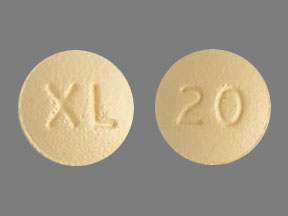Cabozantinib Interactions
There are 529 drugs known to interact with cabozantinib, along with 8 disease interactions, and 2 alcohol/food interactions. Of the total drug interactions, 322 are major, 204 are moderate, and 3 are minor.
- View all 529 medications that may interact with cabozantinib
- View cabozantinib alcohol/food interactions (2)
- View cabozantinib disease interactions (8)
Most frequently checked interactions
View interaction reports for cabozantinib and the medicines listed below.
- Abraxane (paclitaxel protein-bound)
- Alpha-Lipoic-Acid-300 (alpha-lipoic acid)
- Anoro Ellipta (umeclidinium / vilanterol)
- Aspirin Low Strength (aspirin)
- Claritin (loratadine)
- Co-trimoxazole (sulfamethoxazole / trimethoprim)
- Coenzyme Q10 (ubiquinone)
- Copper (copper gluconate)
- CoQ10 (ubiquinone)
- Eliquis (apixaban)
- Entyvio (vedolizumab)
- Glycerol (glycerin)
- High Potency B Complex with B12 and C (multivitamin)
- Imodium (loperamide)
- Iron Sulfate (ferrous sulfate)
- Keppra (levetiracetam)
- Lenvima (lenvatinib)
- Lexapro (escitalopram)
- Metoprolol Succinate ER (metoprolol)
- Metoprolol Tartrate (metoprolol)
- Opdivo (nivolumab)
- Paracetamol (acetaminophen)
- Pepcid AC (famotidine)
- Quercetin (bioflavonoids)
- Synthroid (levothyroxine)
- Vitamin B12 (cyanocobalamin)
- Vitamin C (ascorbic acid)
- Vitamin D3 (cholecalciferol)
- Vitamin K2 (menaquinone)
- Xanax (alprazolam)
Cabozantinib alcohol/food interactions
There are 2 alcohol/food interactions with cabozantinib.
Cabozantinib disease interactions
There are 8 disease interactions with cabozantinib which include:
- hemorrhagic events
- GI perforation
- hepatic impairment
- hypertension
- renal impairment
- RPL syndrome
- thromboembolism
- lung toxicity
More about cabozantinib
- cabozantinib consumer information
- Compare alternatives
- Reviews (27)
- Side effects
- Dosage information
- During pregnancy
- Drug class: multikinase inhibitors
- Breastfeeding
- En español
Related treatment guides
Drug Interaction Classification
| Highly clinically significant. Avoid combinations; the risk of the interaction outweighs the benefit. | |
| Moderately clinically significant. Usually avoid combinations; use it only under special circumstances. | |
| Minimally clinically significant. Minimize risk; assess risk and consider an alternative drug, take steps to circumvent the interaction risk and/or institute a monitoring plan. | |
| No interaction information available. |
Further information
Always consult your healthcare provider to ensure the information displayed on this page applies to your personal circumstances.


